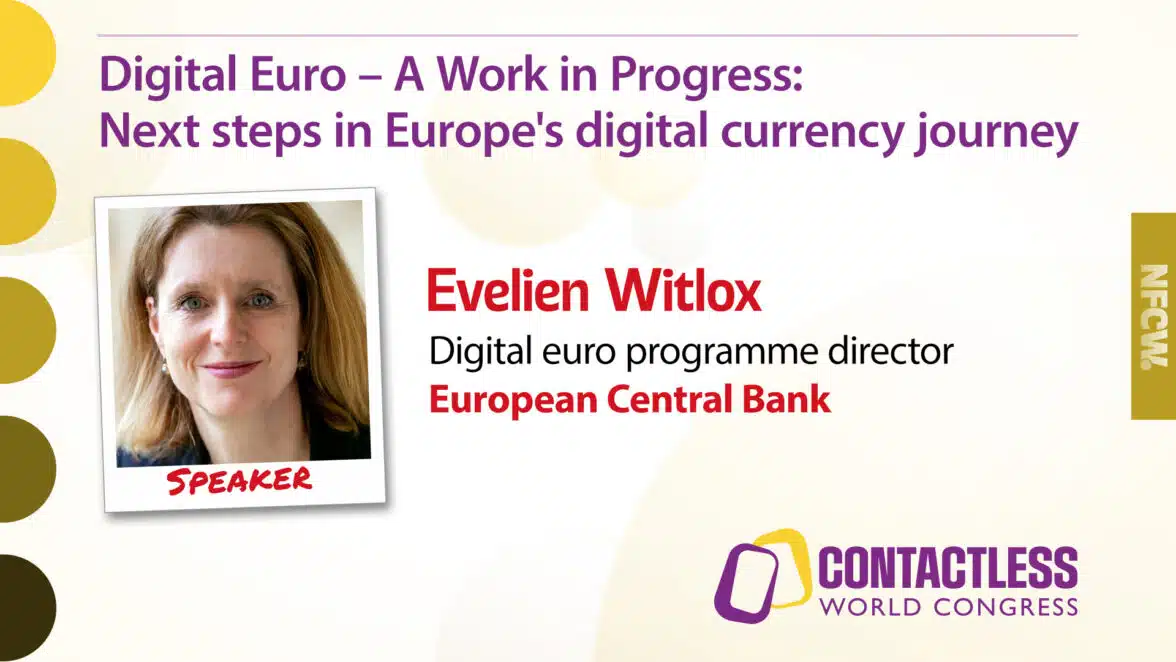
“We believe that the digital euro is the natural and digital evolution of our currency,” Evelien Witlox, the programme director in charge of the European Central Bank’s digital euro project, reports in a presentation for NFCW’s Contactless World Congress online event series which is now available to view in the NFCW Knowledge Centre.
In her presentation, Witlox explains what a digital euro is, sets out the reasons why a digital euro is needed, and outlines the current status of the digital euro project along with the next steps that the European Central Bank (ECB) will be taking towards making it a reality.
She also shares a detailed overview of the structure the ECB expects to use to implement the central bank digital currency (CBDC), including the role it expects itself to play and the roles and incentives that will be put in place for merchants, acquirers, payment service providers and other financial intermediaries.
The ECB defines a digital euro as “a central bank money for digital retail payments solutions that can be directly accessed and used by citizens, businesses and governments in the entire euro area”, Witlox explains.
“Today, citizens do not have access to central bank money in a digital form and, as we move forward to a digitized society and the proportion of cash payment decreases, we believe that the digital euro is the natural and digital evolution of our currency.
“If you get a digital euro from a bank in Portugal and you travel to Germany and you pay at the German merchant, that should be accepted there, first of all, and, secondly, it should be the same experience as if you will do that, for example in this case, in Portugal. It’s like banknotes. Also there we have made sure that you can pay with your banknote wherever you go.”
Privacy
A digital euro would have a core focus on privacy, she adds, but will not be fully anonymous.
It would also employ several tools designed to enhance financial inclusion and provide consumers with the option of making payments using either a mobile payment app or a physical digital euro payment card.
A basic service will be available free of charge to all and offline payments will be supported, Witlox says.
A recording of Witlox’s full 20-minute presentation, along with a copy of her slide deck, is now available in the NFCW Knowledge Centre for NFCW members to access.
• Not yet a member? You can get your free NFCW membership here. You’ll then be able to access both this presentation and a host of additional Contactless World Congress presentations and resources with just one click.
Next: Visit the NFCW Expo to find new suppliers and solutions